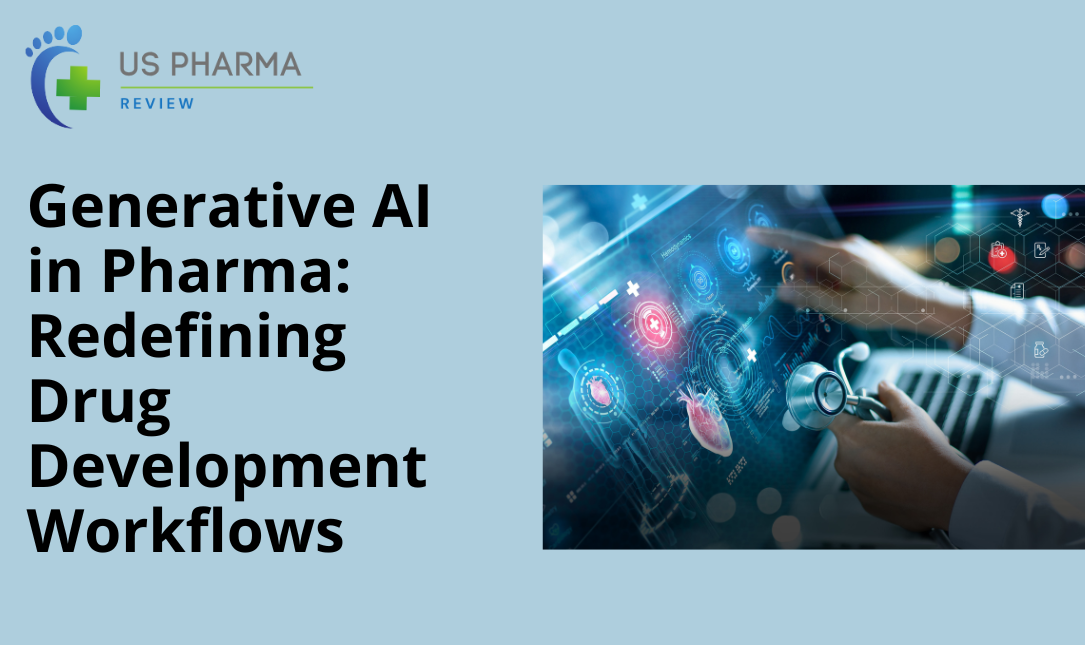Travel Tips
Lorem ipsum dolor sit amet, consectetur adipiscing elit.

The pharmaceutical industry has long been characterized by its intricate, time-consuming, and expensive drug development processes. However, the integration of generative AI in pharma is rapidly reshaping how drugs are discovered, tested, and brought to market. From early-stage molecular design to predictive safety assessments, generative AI technologies are providing unprecedented efficiency and accuracy across R&D pipelines.
In this article, we explore the transformative impact of generative AI in pharma, highlighting key applications such as AI drug modeling, virtual screening tools, R&D optimization, and predictive analytics pharmaceuticals.
Traditional drug discovery often takes years and requires substantial financial investment. Generative AI in pharma offers a revolutionary alternative by creating intelligent algorithms capable of designing novel molecules with desired therapeutic properties. These algorithms can predict molecular interactions, optimize pharmacokinetic profiles, and reduce the risk of failure in later stages of development.
One critical advantage is the use of AI drug modeling, where generative AI systems simulate molecular structures and predict their biological activity before actual synthesis. This approach drastically reduces the dependency on trial-and-error experimentation in laboratories, speeding up the identification of promising candidates.
Virtual screening tools powered by generative AI in pharma have become essential for evaluating large compound libraries efficiently. These tools can prioritize molecules with the highest likelihood of success, eliminating low-probability candidates early in the R&D process.
By integrating virtual screening with generative AI, pharmaceutical companies can perform large-scale in silico testing, saving both time and resources. This not only accelerates drug discovery but also enhances the accuracy of predicting drug-target interactions, ultimately reducing the time-to-market for life-saving therapies.
Another significant application of generative AI in pharma lies in R&D optimization. Pharmaceutical research and development involves complex workflows, from preclinical testing to clinical trials. Generative AI can identify bottlenecks, optimize experimental designs, and predict outcomes with higher confidence.
For instance, AI-driven simulations can model potential drug responses in diverse patient populations, allowing companies to tailor clinical trials more effectively. This level of optimization minimizes costly late-stage failures and improves the overall efficiency of the development pipeline.
Predictive analytics pharmaceuticals is an area where generative AI in pharma is particularly transformative. By analyzing vast datasets, AI models can forecast efficacy, safety, and potential adverse effects of drug candidates. These predictive insights enable pharmaceutical companies to make data-driven decisions at every stage of development.
Additionally, combining generative AI with predictive analytics allows for continuous monitoring of drug performance, even post-approval. For instance, integrating predictive models with Post-Marketing Surveillance systems enhances patient safety and informs long-term drug efficacy strategies.
Several leading pharmaceutical companies are already leveraging generative AI in pharma to streamline operations:
Novel Molecule Design: AI algorithms have generated entirely new molecular structures that exhibit high potency against specific targets, reducing the traditional discovery timeline from years to months.
Drug Repurposing: Generative AI helps identify existing drugs that could be effective for other indications, cutting costs and accelerating clinical applications.
Clinical Trial Optimization: AI-driven simulations optimize patient cohort selection and dosing regimens, ensuring trials are both efficient and statistically robust.
These examples demonstrate how generative AI in pharma is not just a theoretical concept but a practical tool reshaping the industry's future.
Despite its promise, implementing generative AI in pharma is not without challenges. Data quality, model interpretability, and regulatory compliance remain significant hurdles. Pharmaceutical companies must ensure that AI-generated insights are both reliable and explainable to regulatory authorities.
Ethical considerations, such as patient privacy and algorithmic bias, must also be addressed. By establishing transparent data governance frameworks and adhering to industry standards, organizations can responsibly harness the power of generative AI in pharma while maintaining public trust.
The future of pharmaceutical innovation is undoubtedly intertwined with generative AI in pharma. As AI models become more sophisticated, the integration of AI drug modeling, virtual screening tools, and predictive analytics pharmaceuticals will further reduce drug development timelines and costs.
Pharmaceutical companies that embrace generative AI will not only achieve operational efficiency but also deliver safer and more effective therapies to patients worldwide. By combining advanced technology with strategic innovation, the industry is poised for a new era of intelligent, data-driven drug development.
Generative AI in pharma is redefining traditional drug development workflows. From accelerating molecule design through AI drug modeling and virtual screening tools to optimizing R&D processes and leveraging predictive analytics pharmaceuticals, the potential applications are vast and transformative.
As the pharmaceutical industry continues to adopt these advanced technologies, the promise of faster, safer, and more cost-effective therapies is becoming a reality. The era of generative AI in pharma is here, and it is reshaping the future of medicine for the better.